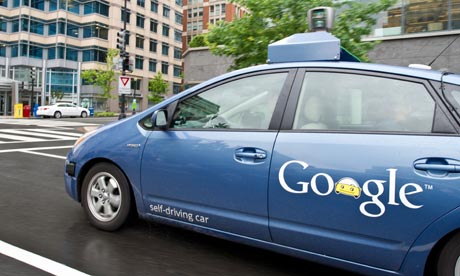(Bloomerg) Google Inc. could become a “serious competitive threat” to the auto industry if it continues to push its self-driving cars, said Mark Reuss, product-development chief at General Motors Co.
GM, which is developing its own autonomous vehicle technology, isn’t in a race with Google to create driverless cars, he told reporters yesterday in Detroit.
Google announced May 27 that it plans to deploy at least 100 fully autonomous vehicles that it designed in tests starting this year. The two-seat cars will have a top speed of 25 miles (40 kilometers) per hour and no steering wheel. The Mountain View, California-based company previously had been testing its technology in other vehicles, such as Toyota Motor Corp.’s Prius.
“Anybody can do anything with enough time and money,” Reuss said. “If they set their mind to it, I have no doubt” that they could become “a very serious competitive threat.”
GM demonstrated last year what it calls Super Cruise technology, which will support semi-automated driving features including hands-off lane following, braking and speed control under certain conditions. GM also has an autonomous vehicle project called EN-V that it’s been developing in China. The soda machine-sized pods don’t look like normal cars.
Creeping Change
The industry will phase in autonomous vehicles over years, Reuss said.
“It’s going to be a creep, it’s not going to be a mind- bending thing,” Reuss said. “I don’t think you’re going to see an autonomous vehicle take over the city anytime soon.”
Reuss, saying he’s only seen Google’s little car in a photograph, described it as “kind of cool” adding that it looked similar to an old Volkswagen Beetle.
Over the next two decades, self-driving cars are going to get a bigger share of the market. Such vehicles will reach 11.8 million in 2035, according to Egil Juliussen, an analyst at IHS Automotive. And by 2050, he expects almost all cars to become self-driving. They are estimated to fetch premiums that will start at $7,000 to $10,000 in 2025, he said.

